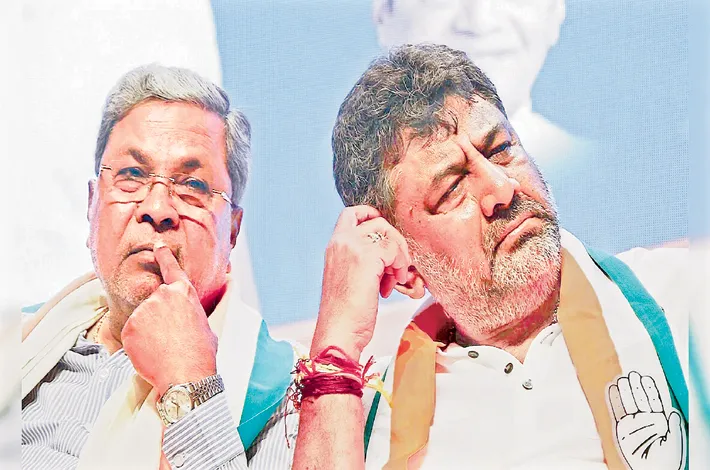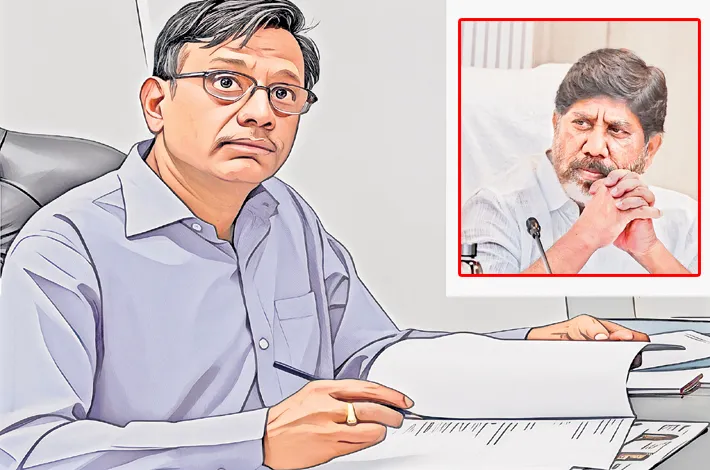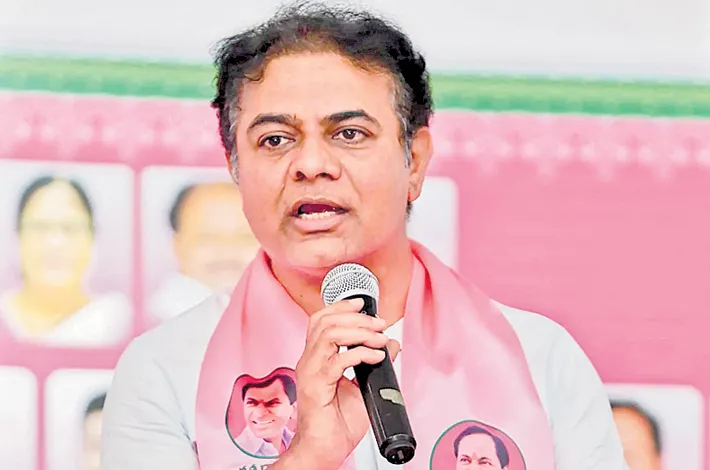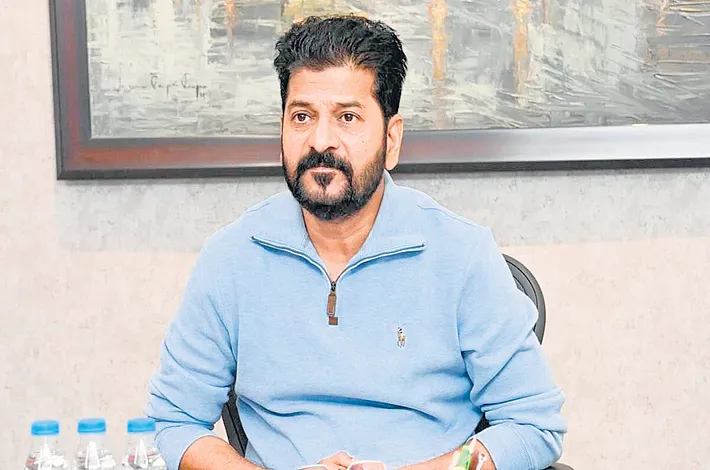Leadership crisis in Karnataka as power tussle in Congress intensifies
30-10-2025 12:00:00 AM

Power struggle:
■ Whether Siddaramaiah will continue as Chief Minister or if DK Shivakumar will assume the role after a reported “50/50 formula” in 2023 promising him the position after 2.5 years.
■ Also rumours of 3 deputy CMs potentially. Names like Law Minister H.K. Patil, a Lingayat and Home Minister G. Parameshwara, an SC leader, are being considered for the additional posts.
■ Another rumour of Siddaramaiah’s loyalist, Satish Jarkiholi replacing Shivakumar as state party president, further sidelining him.
Karnataka today appears as a kind of crown jewel to the Congress party as it is the third-richest state in India and also one of the three states being ruled by the 139 year old party. However, a brewing power struggle between Chief Minister Siddaramaiah and Deputy Chief Minister D.K. Shivakumar threatens to destabilize the party’s stronghold, raising questions about governance and leadership in the state.
The ongoing tussle, which is going on since about seven months, centres on whether Siddaramaiah will continue as Chief Minister or if Shivakumar, the party’s state president and financial powerhouse, will assume the role after a reported “50/50 formula” in 2023 promising him the position after two-and-a-half years. With November marking the supposed deadline for this transition, tensions have escalated. Shivakumar, who flew to Delhi to meet the Congress high command, was unable to secure a meeting with Rahul Gandhi, who appears indecisive amid the crisis.
Sources indicate a cabinet reshuffle planned by November 18 could see Karnataka with three deputy chief ministers instead of one, potentially diluting Shivakumar’s influence. Names like Law Minister H.K. Patil, a Lingayat, and Home Minister G. Parameshwara, an SC leader, are being considered for the additional posts.Also rumours fly of Siddaramaiah’s loyalist and present public works minister Satish Jarkiholi, may replace Shivakumar as state party president, further sidelining him.
The confusion has led to public frustration, with Home Minister Parameshwara openly admitting that the leadership uncertainty is impacting governance. Siddaramaiah, however, remains firm, declaring no vacancy for the Chief Minister’s post, while his son Yathindra added fuel to the fire by suggesting Jarkiholi as a potential successor.The opposition BJP has seized the opportunity, accusing Congress of prioritizing power struggles over governance.
A BJP spokesperson highlighted the governance failures alleging that while on one hand, Karnataka’s infrastructure was crumbling the government was more focused on caste and religion-based politics. He also pointed to the state’s fiscal deficit, now nearing 27%, and rising inflation as evidence of misplaced priorities. He further levelled allegations of financial mismanagement, including the diversion of Rs 14,000 crore in funds for SC/ST welfare.
Congress representatives, including political analysts inclined to the party dismissed the crisis as “media hype,” arguing that Karnataka’s 135-seat mandate in 2023 reflects public trust. They emphasized the state’s economic strengths, including its status as India’s IT hub and the second hight highest tax-paying state. However, they sidestepped questions about Rahul Gandhi’s absence and the high command’s inability to resolve the crisis, insisting the decision rests with the party leadership.
They defended the Congress government, noting that Karnataka remains the second-largest contributor to India’s GDP, with 6.2% growth outpacing the national average and a 4% rise in agriculture. The also dismissed allegations against Siddaramaiah, citing a court ruling that cleared him in the Mysore Urban Development Authority (MUDA) scam.
However, Critics including senior media personnel argue that the Congress’s internal conflicts are undermining Karnataka’s progress. He pointed to a decline in GDP growth from 14.3% to 13.1%, reduced FDI, and rising unemployment, contrasting Congress’s claims of prosperity. They also point out that scandals like the Valmiki scams have also provided ammunition for the opposition, led by the BJP and JDS, to attack the Congress.
As Karnataka approaches the critical 2.5-year mark, the Congress faces a pivotal moment. Political observers suggest that the decision rests with the party’s high command and the support of its 135 MLAs, who will play a crucial role in determining whether Siddaramaiah completes his term or makes way for a successor. For now, the leadership tussle continues to overshadow governance, leaving Karnataka’s citizens caught in the crossfire of political ambition.
The public spats risk alienating key voter groups, particularly the Vokkaligas who view Shivakumar as their leader and could fracture the party’s support base. Moreover, the disunity threatens to tarnish the Congress’s image within the broader INDIA alliance, with parties like the TMC and RJD increasingly questioning its credibility as a unifying force.








